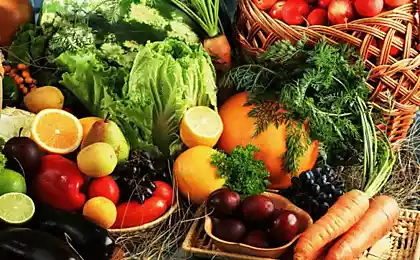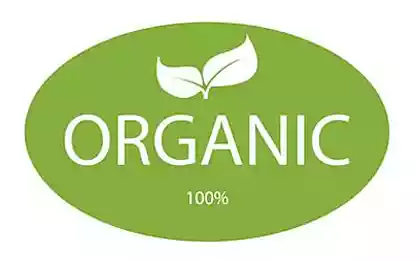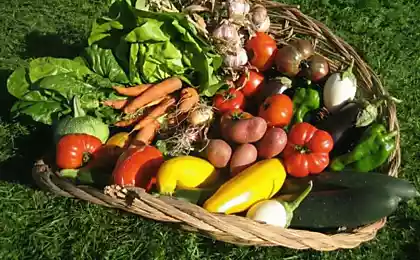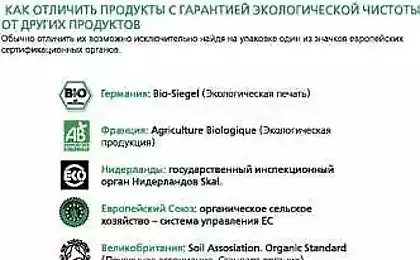503
Organic products are healthier
Scientists have proved that organic crops and foods have more antioxidants and fewer pesticides.
Organic crops and products based on them contain up to 60% more key antioxidants than cultures grown in the traditional way. The results came a group of scientists at Newcastle University (UK) led by Professor of the school of agriculture, food and rural development University Carl Liverton.
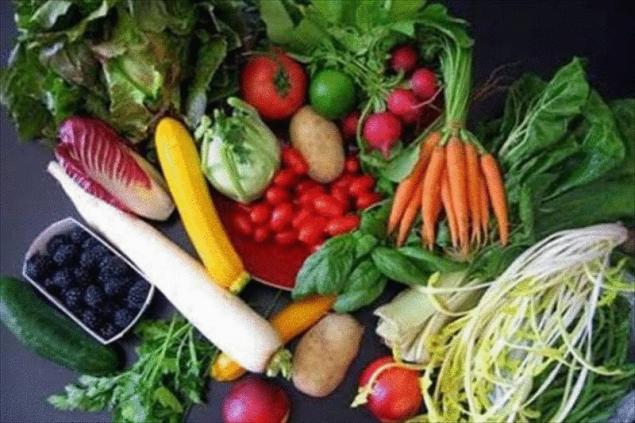
The results of their studies indicate that the concentration of such antioxidants as polyphenols, in organic cultures was in the range from 18 to 69%. And as proven by numerous studies in this area, the antioxidants reduce the risk of chronic diseases, including cardiovascular and neurodegenerative diseases and some types of cancer.
Less harmful, more helpful
In organic crops were detected significantly lower concentrations of toxic heavy metals and nitrogen. For example, in organic crops were detected in 50% less cadmium, which is one of three metals (along with lead and mercury for which the European Commission set maximum allowable standards in food.
The study also showed that the probability of detection of pesticide residues in conventional crops is 4 times higher than in organic.
The analysis of organic and conventional crops, the researchers found that the transition to the consumption of organic fruits, vegetables and cereals and products based on them, will provide the body with additional antioxidants, equivalent to 1-2 extra portions of fruit and vegetables a day.
"However, this study should be only the starting point. We have shown without a doubt that there are differences in the composition of organic and conventional crops, now there is an acute need for well-controlled studies of human diets on a group of patients aimed at identification and quantification of the impact of transition to organic food on human health," says Carlo Leifert.
New methods of research
This study is based on the most extensive ever carried out the analysis of the nutrient content in organic foods compared to food produced in the traditional way. The international team working on the study used an innovative approach to the systematic review of the literature and meta-analysis.
The results agree with the data previously obtained in the course of the research Agency the UK Food Standards (Food Standards Agency, FSA 2009), which found no significant differences or exceed the nutritional value of organic products.
The findings of the research Agency the UK Food Standards were based on only 46 publications covering crops, meat and dairy, while Newcastle's experts performed a meta-data analysis of 343 peer-reviewed publications in the area of differences in the composition of organic and conventional crops.
The purpose of the study at Newcastle University was to identify and quantify differences in the composition between organic and conventional crops (primarily cereals, vegetables and fruits) and products based on them (for example, vegetable oils, wine and baby food). The study is based on a systematic review of all available literature and data.
Source: agracultura.org/
Organic crops and products based on them contain up to 60% more key antioxidants than cultures grown in the traditional way. The results came a group of scientists at Newcastle University (UK) led by Professor of the school of agriculture, food and rural development University Carl Liverton.

The results of their studies indicate that the concentration of such antioxidants as polyphenols, in organic cultures was in the range from 18 to 69%. And as proven by numerous studies in this area, the antioxidants reduce the risk of chronic diseases, including cardiovascular and neurodegenerative diseases and some types of cancer.
Less harmful, more helpful
In organic crops were detected significantly lower concentrations of toxic heavy metals and nitrogen. For example, in organic crops were detected in 50% less cadmium, which is one of three metals (along with lead and mercury for which the European Commission set maximum allowable standards in food.
The study also showed that the probability of detection of pesticide residues in conventional crops is 4 times higher than in organic.
The analysis of organic and conventional crops, the researchers found that the transition to the consumption of organic fruits, vegetables and cereals and products based on them, will provide the body with additional antioxidants, equivalent to 1-2 extra portions of fruit and vegetables a day.
"However, this study should be only the starting point. We have shown without a doubt that there are differences in the composition of organic and conventional crops, now there is an acute need for well-controlled studies of human diets on a group of patients aimed at identification and quantification of the impact of transition to organic food on human health," says Carlo Leifert.
New methods of research
This study is based on the most extensive ever carried out the analysis of the nutrient content in organic foods compared to food produced in the traditional way. The international team working on the study used an innovative approach to the systematic review of the literature and meta-analysis.
The results agree with the data previously obtained in the course of the research Agency the UK Food Standards (Food Standards Agency, FSA 2009), which found no significant differences or exceed the nutritional value of organic products.
The findings of the research Agency the UK Food Standards were based on only 46 publications covering crops, meat and dairy, while Newcastle's experts performed a meta-data analysis of 343 peer-reviewed publications in the area of differences in the composition of organic and conventional crops.
The purpose of the study at Newcastle University was to identify and quantify differences in the composition between organic and conventional crops (primarily cereals, vegetables and fruits) and products based on them (for example, vegetable oils, wine and baby food). The study is based on a systematic review of all available literature and data.
Source: agracultura.org/












